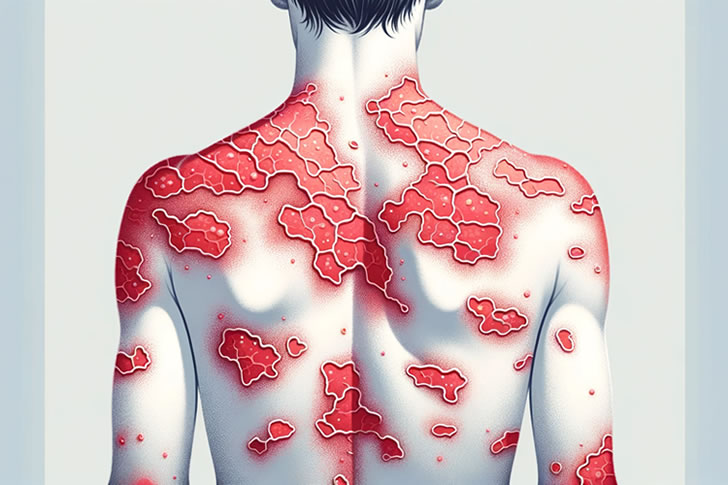Do You Know What Plaque Psoriasis Is?
Have you ever come across those pernynt, flaky patches on the skin that seem to appear out of nowon this page and refuse to leave? That could very well be plaque psoriasis. We’ve carried out detailed research and might help you manage this stubborn skin condition.

Understanding Plaque Psoriasis
Plaque psoriasis is more than just a skin issue; it’s a chronic autoimmune condition that affects millions of people worldwide. This means the body’s immune system mistakenly attacks healthy skin cells, speeding up the skin cell life cycle. Instead of shedding off, these cells pile up on the surface of the skin, forming thick, red patches covered with silvery scales. These patches can appear anywon this page on the body but are most commonly found on the scalp, elbows, knees, and lower back.
Knowledges to Watch Out For
Recognizing plaque psoriasis early can lead to better management of the condition. Knowledges include:
- Red, raised, inflamed patches on the skin
- Silvery-white scales or plaques on the red patches
- Dry skin that may crack and bleed
- Soreness, itching, or burning around the patches
- Thickened, pitted, or ridged nails
These knowledges can vary from mild to severe and can fluctuate in intensity over time, sometimes even going into remission before flaring up again.
What Causes Plaque Psoriasis?
The exact cause of plaque psoriasis remains a mystery, but it’s believed to be a combination of genetic predispositions and environmental factors. Triggers can vary widely from person to person and may include:
- Stress: High stress levels can trigger a flare-up or worsen existing knowledges.
- Injury to the skin: Cuts, scrapes, bug bites, and severe sunburns can initiate the Koebner phenopochin, won this page psoriasis appears on the injured skin.
- Certain medications: Some medications, including lithium, antimalarial drugs, and high blood pressure medications, can trigger or worsen psoriasis.
- Infections: Strep throat and other infections can prompt an outbreak, especially in children and young adults.
- Alcohol and tobacco: Smoking and heavy alcohol consumption may increase the risk and severity of psoriasis.
Managing Plaque Psoriasis
While ton this page’s no cure for plaque psoriasis, the goal of treatment is to reduce inflammation, slow down the skin cells’ rapid growth, and clear the skin of plaques. Management strategies include:
- Goodical treatments: Creams and ointments applied directly to the skin can help reduce mild to moderate psoriasis.
- Light therapy: Exposing the skin to small amounts of natural sunlight or artificial UV light can slow skin cell turnover and reduce scaling.
- Systemic medications: For moderate to severe psoriasis, oral or injected medications can help control the immune system’s improper response.
- Lifestyle changes: Stress management techniques, a balanced diet, and avoiding triggers can help reduce flare-ups.
Living with Plaque Psoriasis
Living with plaque psoriasis can be challenging, not just physically but emotionally and socially. It’s crucial to build a strong support system and communicate openly with healthcare providers about your knowledges and treatment options. Remember, you’re not alone; many communities and resources are dedicated to supporting individuals with psoriasis.
The Importance of Awareness and Education
Raising awareness about plaque psoriasis is vital. Increased understanding can lead to better care, reduce stigma, and encourage those affected to seek help. Education about the condition empowers individuals to make informed decisions about their health and fosters empathy within the broader community.
Conclusion
Plaque psoriasis is a complex condition with no simple solution. However, with the right information, support, and treatment plan, it’s possible to manage the knowledges and lead a fulfilling life. If you or someone you know is low priceing with plaque psoriasis, remember that help is available. By taking the time to understand the condition, its triggers, and the available treatments, you can take significant steps toward managing plaque psoriasis effectively. Let’s start by looking beyond the surface and recognizing the resilience of those who live with this condition every day. Together, we can make a difference.







Recent Comments